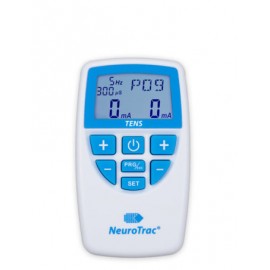How TENS Works for Pain Relief: Understanding the Mechanism and Benefits
Transcutaneous electrical nerve stimulation (TENS) is a non-invasive, drug-free method for managing pain. It involves the use of a small, portable device that delivers low-voltage electrical currents through electrodes placed on the skin. TENS is used to treat various types of pain, including musculoskeletal, neuropathic, and post-surgical pain. This article will explore the mechanisms by which TENS works for pain relief and discuss its potential benefits and limitations.
Mechanism of Action
The pain-relieving effects of TENS are primarily attributed to two mechanisms: the gate control theory of pain and the release of endogenous opioids.
a. Gate Control Theory of Pain
The gate control theory, proposed by Melzack and Wall in 1965, suggests that the perception of pain can be modulated by the balance of activity between large (A-beta) and small (A-delta and C) nerve fibers. According to this theory, non-painful sensory input, such as the electrical stimulation provided by TENS, activates large A-beta fibers. This stimulation effectively "closes the gate" in the spinal cord, inhibiting the transmission of pain signals from smaller A-delta and C fibers to the brain. As a result, the perception of pain is reduced.
b. Release of Endogenous Opioids
TENS may also help alleviate pain by stimulating the release of endogenous opioids, such as endorphins and enkephalins. These naturally occurring substances bind to opioid receptors in the brain and spinal cord, producing analgesic effects similar to those of opioid medications. The release of endogenous opioids contributes to the overall pain-relieving effects of TENS therapy.
Benefits of TENS Therapy
Some potential benefits of TENS therapy for pain relief include:
a. Non-invasive and Drug-free
TENS is a non-invasive treatment option that does not require the use of medications. This makes it an attractive alternative for individuals who cannot tolerate or do not wish to rely on pharmaceutical interventions for pain management.
b. Customizable and Adjustable
TENS units offer adjustable settings, allowing users to tailor the intensity, frequency, and duration of electrical stimulation to their specific needs and preferences. This customization enables individuals to achieve optimal pain relief while minimizing the risk of side effects or discomfort.
c. Portable and Easy to Use
TENS units are typically small, portable devices that can be easily incorporated into daily routines. This convenience allows users to administer pain relief on-demand and maintain their regular activities without disruption.
d. Minimal Side Effects
TENS therapy is generally considered safe, with few reported side effects. The most common side effect is mild skin irritation at the site of electrode placement, which can usually be managed by adjusting the electrode position or using hypoallergenic electrode pads.
Limitations and Considerations
While TENS can be an effective pain management tool for some individuals, it is important to recognize its limitations:
a. Variable Efficacy
The effectiveness of TENS therapy can vary considerably between individuals and depends on factors such as the underlying cause of pain, electrode placement, and stimulation parameters. In some cases, TENS may provide only minimal or temporary pain relief.
b. Contraindications
TENS therapy is contraindicated for individuals with certain medical conditions, such as those with a pacemaker or implanted defibrillator, pregnant women (especially during the first trimester), and individuals with epilepsy. It is essential to consult with a healthcare professional before starting TENS therapy to ensure it is appropriate and safe.
Conclusion
TENS therapy offers a non-invasive, drug-free option for pain relief that works by modulating pain perception through the gate control theory of pain and the release of endogenous opioids. With its customizable settings, portable design, and minimal side effects, TENS can be a valuable tool in managing various types of pain. However, the effectiveness of TENS therapy can vary between individuals, and it may not be suitable for everyone. It is essential to consult with a healthcare professional before starting TENS therapy to ensure it is appropriate and safe for your specific needs and medical conditions. While TENS may not provide complete pain relief for everyone, it can be a useful adjunct to other pain management strategies and contribute to an improved quality of life for those living with chronic pain.





Leave your comment
Note: HTML is not translated!